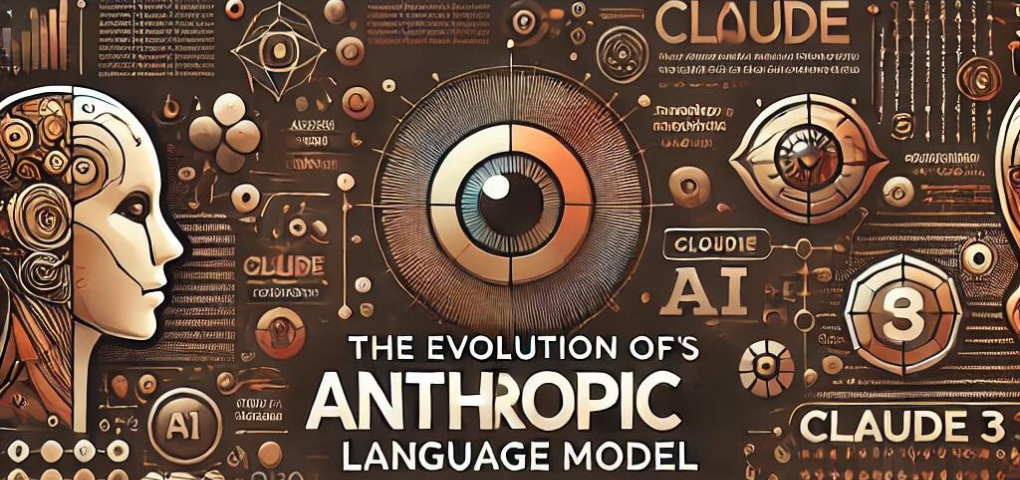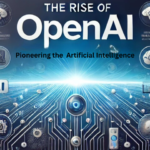
In the rapidly evolving landscape of artificial intelligence, Anthropic has emerged as a significant player with its family of large language models known as Claude. Since its initial release in March 2023, Claude has undergone several iterations, each bringing new capabilities and improvements. This blog post delves into the journey of Claude, exploring its various models, the innovative training methodologies employed, and the services it offers.
The Genesis of Claude
Claude is a series of large language models developed by Anthropic, a company dedicated to creating AI systems that are helpful, honest, and harmless. The first model, simply named Claude, was launched in March 2023. This initial version showcased impressive capabilities but also highlighted areas for improvement, particularly in coding, math, and reasoning.
Claude’s Training Methodology: Constitutional AI
One of the standout features of Claude’s development is the use of Constitutional AI, a novel approach devised by Anthropic. This method aims to train AI systems to be harmless and helpful without extensive human feedback. The process involves two main phases: supervised learning and reinforcement learning from AI feedback (RLAIF).
Supervised Learning Phase
In the supervised learning phase, Claude generates responses to various prompts and then self-critiques these responses based on a predefined set of guiding principles, referred to as a “constitution.” The model revises its responses accordingly and is fine-tuned on these revised outputs.
Reinforcement Learning from AI Feedback (RLAIF)
During the RLAIF phase, the model’s responses are evaluated for their compliance with the constitution by another AI system. This feedback is used to train a preference model that assesses how well responses align with the constitution. Claude is then fine-tuned to align with this preference model, ensuring that it adheres to ethical guidelines while maintaining functionality.
The Constitution
Claude’s constitution comprises 75 points, including sections from the UN Universal Declaration of Human Rights. This comprehensive set of guidelines ensures that the AI remains ethical and transparent, capable of explaining its objections to harmful requests.
Evolution of Claude Models
Claude and Claude Instant
The initial release included two versions: Claude and Claude Instant. Claude Instant was designed to be a faster, less expensive, and lighter version, with an input context length of 100,000 tokens (approximately 75,000 words).
Claude 2
Released in July 2023, Claude 2 marked a significant upgrade. It expanded the context window from 9,000 tokens to 100,000 tokens and introduced features like the ability to upload PDFs and other documents for reading, summarizing, and assisting with tasks.
Claude 2.1
Claude 2.1 further enhanced the model’s capabilities by doubling the token window to 200,000 tokens, equivalent to around 500 pages of written material. This version also aimed to reduce the likelihood of producing false statements.
Claude 3
March 14, 2024, saw the release of Claude 3, which set new industry benchmarks across various cognitive tasks. The Claude 3 family includes three models: Haiku, Sonnet, and Opus, with Opus being the default version. Opus boasts a context window of 200,000 tokens, expandable to 1 million for specific use cases. Claude 3 demonstrated advanced meta-cognitive reasoning, including the ability to recognize when it was being tested.
Claude 3.5 Sonnet
On June 20, 2024, Anthropic released Claude 3.5 Sonnet, which showed significant improvements in coding, multistep workflows, chart interpretation, and text extraction from images. This version also introduced the Artifacts capability, allowing Claude to create and preview code in real-time.
Services and Accessibility
Anthropic offers various plans for accessing Claude models. Limited-use access to Claude 3.5 Sonnet is free, requiring an email address and a cellphone number. For more extensive usage and access to all Claude 3 models, a paid plan is available. Additionally, Anthropic introduced the Claude Team plan, its first enterprise offering, and a Claude iOS app on May 1, 2024.
Ethical Considerations and Criticisms
While Claude 2 received praise for its ethical alignment, it also faced criticism for being overly stringent, sometimes refusing assistance with benign requests. This sparked a debate over the “alignment tax,” the cost of ensuring an AI system is ethically aligned. Critics argue for a balance between ethical considerations and practical functionality, emphasizing user autonomy and effectiveness.
Conclusion
Claude’s journey from its initial release to the latest iterations showcases Anthropic’s commitment to developing AI systems that are not only powerful but also ethical and transparent. With each new version, Claude continues to push the boundaries of what AI can achieve, setting new standards in the industry. As we look to the future, it will be exciting to see how Claude evolves and what new capabilities it will bring to the table.
For more information, visit the official Claude website.
By exploring the evolution of Claude, we gain insight into the innovative approaches and ethical considerations that drive the development of advanced AI systems. Anthropic’s dedication to creating helpful, honest, and harmless AI sets a benchmark for the industry, paving the way for future advancements in artificial intelligence.


